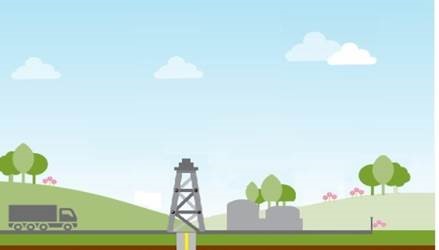Onshore oil and gas regulation - information page
Overview
The Environment Agency is the environmental regulator for onshore oil and gas operations in England. We ensure that oil and gas operations are carried out in a way that protects people and the environment. We work with a number of regulatory bodies to oversee shale gas exploration in England.

The leaflets below explain more about the Environment Agency’s role and some of the controls that are in place to protect people and the environment.
We have received a number of enquiries about a group of techniques, known as acidisation. The document below covers our responses to the most commonly asked questions.
We have also produced two short films, the first explains our approach to regulating the shale gas industry and the second covers regulation of the conventional oil and gas industry.
The Shale Environmental Regulator Group (SERG)
The Shale Environmental Regulator Group (SERG) was launched on the 5 October 2018. It brings the onshore oil and gas regulators (Environment Agency, Health and Safety Executive and the North Sea Transition Authority) together as a virtual regulatory group for the environmental aspects of shale gas exploration and production. The SERG acts as a single face for local communities, local authorities and industry. It provides transparency and clarity to the public, helps to resolve regulatory issues on sites and shares best practice with local authorities considering shale gas applications.
More information on how the SERG regulates the environmental aspects of shale gas exploration and production can be found in this Working Together Agreement.
There is a moratorium on shale gas exploration in England.
The SERG is currently inactive.
Research
We carry out research as part of our evidence based approach to regulation of the onshore oil and gas industry. We use it to set high standards for the industry and to provide us with confidence in our knowledge of the local environment before, during and after operations. This helps us to ensure that the necessary controls are in place to safeguard the environment for future generations.
- Environmental Risk Assessment for shale gas exploratory operations in England
- Onshore oil and gas industry sector guidance
- Review of assessment procedures for shale gas well casing installation
- Monitoring and control of fugitive methane from unconventional gas operations
- Considerations for quantifying fugitive methane releases from shale gas operations
- Waste Gas Management at onshore oil and gas sites
We collaborate as part of an international network for environmental regulators to learn best practice from around the world. We also joined an independent research consortium, led by Durham University, to look at the environmental impacts of fracking in Europe.
Audiences
- Businesses
- Elected representatives, including MPs
- Local councils
- Members of the public
- NGOs
Interests
- Business and industry
- Environmental permitting
- Habitats and wildlife
- Permits
- Radioactive substances regulations
- Waste
- Water quality
- Water resources

Share
Share on Twitter Share on Facebook